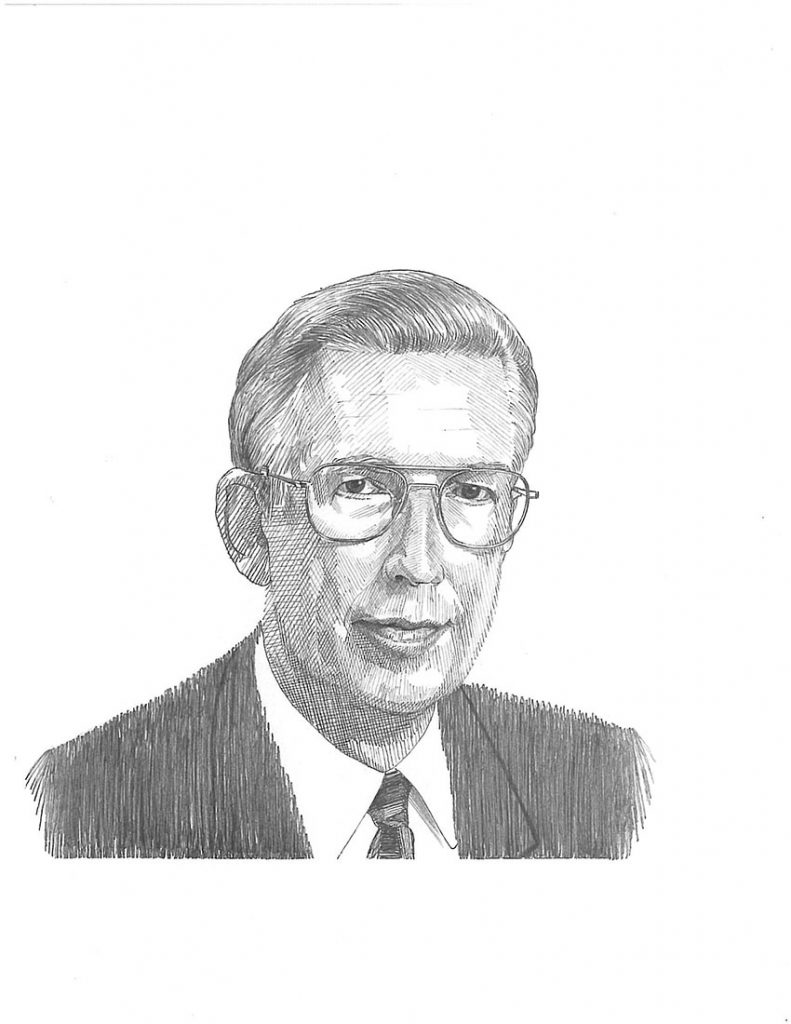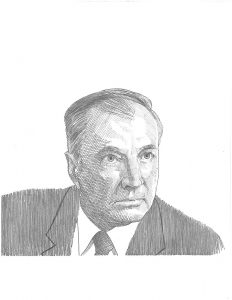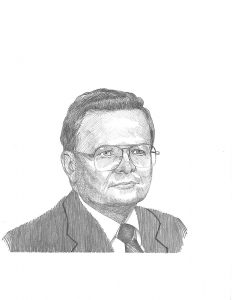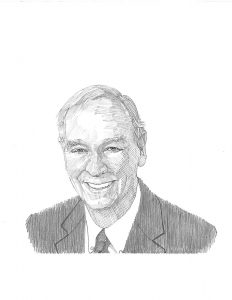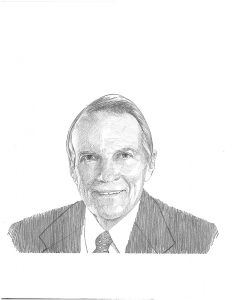Elmer B. Harris says you can’t buy a step-by-step manual for achieving success, and you can’t find a secret seasoning for making something out of yourself. But for someone whose life is recognized marked by ambition, it’s surprising how Harris can whittle down his prosperity, notch by notch, success by success, to reveal one modest, bare-bones mantra — one he’s followed since he was a kid.
“Don’t ever turn down an opportunity,” he said. Not even when it’s flipping hot dogs and scooping sundaes. Aside from his first job at the local Dairy Queen in his hometown, Clanton, a few more opportunities knocked on teenage Elmer’s door. Clanton’s WKLF radio station was looking for help, so 15-year-old Harris signed up to be a DJ. He got the job, and there he played requests for “Hound Dog,” gospel, popular, reported the news, and learned how to be articulate. He introduced himself to worldly affairs and had constant interaction with all sorts of people from different backgrounds — an experience that helped him when he became a leader in business.
Born in 1939 to Alton and Lera Mae (Mitchell) Harris, he attended elementary and high school in Clanton.
While he worked at the station and at Dairy Queen, Harris squeezed in two other jobs. He ran a printing press and also worked in a local machine shop. A year or two after Harris graduated from Chilton County High School, a gentleman strolled into the shop and presented Harris with an opportunity. He asked Harris if he wanted to be considered for Auburn’s co-op education program with Alabama Power Company. Harris said yes and interviewed with Alabama Power the next week. For five years, he alternated spending three months studying electrical engineering at Auburn and the next three in Selma learning engineering, management, and leadership skills from the folks at Alabama Power. “If you can learn how to manage and lead people toward their own successes,” Harris said, “your company will take care of itself.” He believes a person should always find a way to say YES, not NO when needs and opportunities arise.
He graduated from Auburn in 1962 with a degree in electrical engineering and then earned his master’s degrees in engineering and business administration a few years down the road. He has received six honorary doctor degrees. He stayed on with Alabama Power and over the years handled positions of increasing responsibility in the company, including being elected senior vice president, and then executive vice president and chief financial officer in 1979. In 1985, he made a move to become the executive vice president of Georgia Power Company, a sister company. And when he returned to Alabama in 1989, he became Alabama Power Company’s President and CEO. When he came back, he felt several things needed to be changed to increase employee initiative and decision-making, increase employee relationships with customers, enhance community and charitable activities, and minimize price increases.
While Harris was president, a lot of things changed. On his first day, he “burned” all eight books of procedures and replaced them with “any employee is authorized to make any decision that is in the best interest of the company and its customers, bar none.” He remembers back in the days of the late 70s and early 80s when Alabama Power had about a 30 percent approval rating with its customers. He attributed that mostly to the lack of direct communication and relationships between the company, elected officials, and its customers. In a bold decision, Harris cut about 50 percent of the supervisors and managers at Alabama Power, predominantly by using early retirements. He wanted employees to be able to make immediate decisions and be able to give customers immediate answers. The company’s approval rating climbed significantly into the 95-98% range. There’s no substitute for personal relationships is another one of Harris’s philosophies.
In the early 90s when Harris was president of Alabama Power, one of the biggest opportunities for the state fell onto his plate. He remembers when he, Governor Jim Folsom, Jr., and his ADO Director Billy Joe Camp, first got wind that Mercedes-Benz in Stuttgart was looking for a place outside Germany to open a plant. The company announced they had selected 200 potential sites around the globe and Alabama wasn’t one of the chosen. When Folsom asked Harris if Alabama should try to get Mercedes to come, Harris said yes. He told Folsom the state had to be aggressive, put a team together, start setting goals, and stand behind every commitment made, even if when it became uncomfortable. Alabama was the only candidate that made every deadline and parameter Mercedes set, and when it came down to the wire, Alabama offered Mercedes a controversial (at the time, but not now) $250 million incentive package and won the plant. That’s another one of Harris’s philosophies: When an opportunity comes up, you do what you have to do to be competitive and win in an honest ethical manner.
Throughout his professional life, Harris has made charity part of his career. He founded the Alabama Power Foundation, the largest corporate foundation in the state, and funded it at over $150 million dollars. The foundation has given nearly $100 million to Alabama charities and institutions. He also founded the Georgia Power Foundation when he was Georgia Power Company’s executive vice president. He has held leadership roles at many civic and nonprofit organizations and served on the board of directors for well over twenty-five corporations and entities, including Mercedes-Benz US International, Southern Company, Samford University, the Business Council of Alabama, the Economic Development Partnership of Alabama, the Boy Scouts of America and Nature Conservancy. Harris is a graduate of the Air Command and Staff College as well as the Air War College. He served twenty-five years in the military as a command pilot flying the latest jets in the Air Force inventory and achieved the rank of Colonel in the Air Force and Brigadier General in the Alabama Air National Guard. He retired from the Air Force when “the Power Company started interfering with my pleasure.”
Continuing his long history of international and economic development activities, Harris serves as Honorary Consul General of Japan. He is married to Glenda Steele Harris. They have two children, Lori Harris Elmore and Tommy Harris, and six grandchildren.

